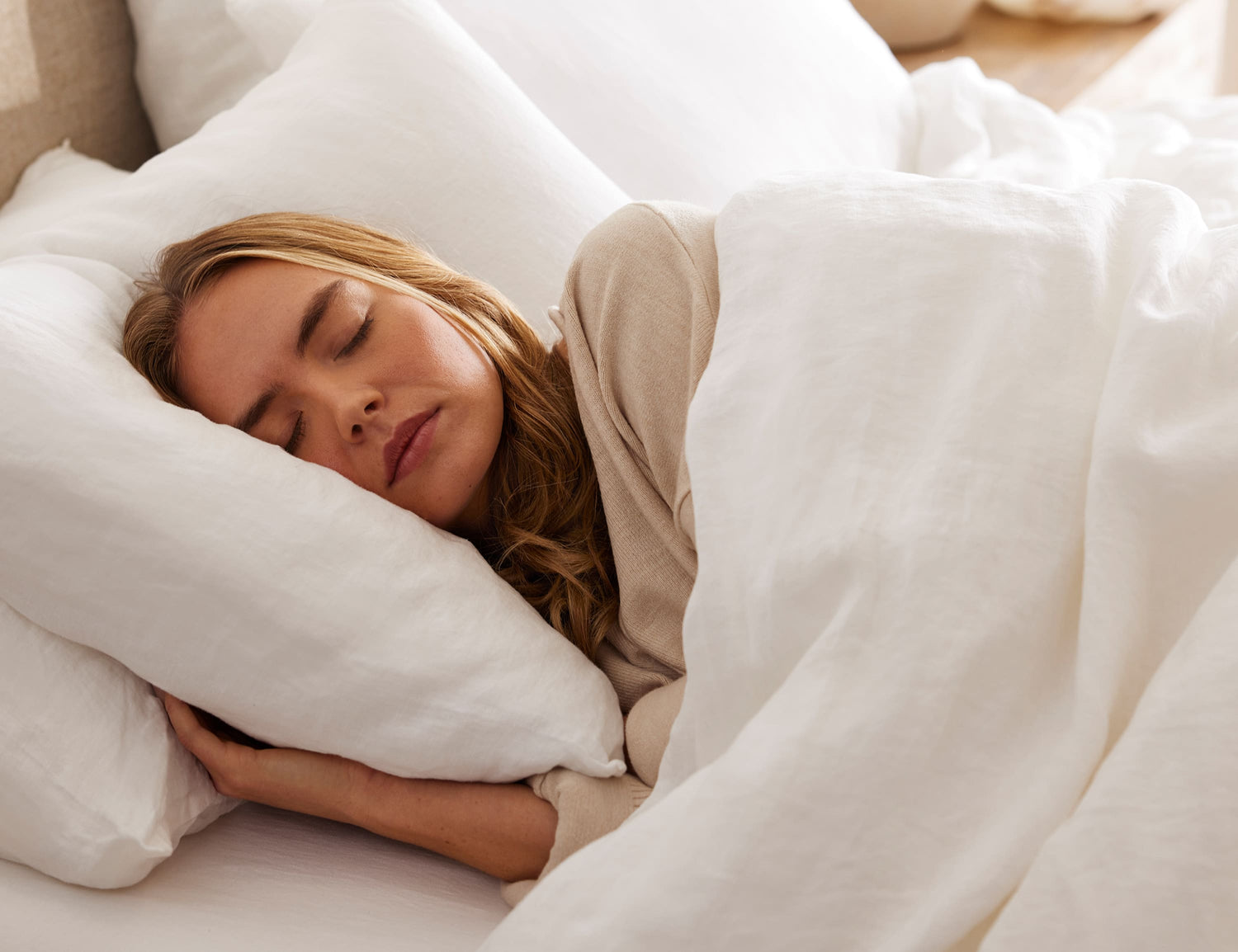What Are Essential Oils?
Essential oils are concentrated extracts derived from plants, capturing their unique scent and beneficial compounds through distillation or cold pressing. These oils are often diluted with carrier oils (like jojoba or coconut oil) before being used topically or inhaled. For centuries, ancient cultures—from Egyptians to Romans—used essential oils for healing, rituals, and relaxation. Today, they're a central part of aromatherapy, offering a natural path to better sleep and improved wellbeing.
Why Use Essential Oils for Sleep?
When it comes to sleep support, certain essential oils stand out for their calming, sedative, or anti-anxiety properties. Here's how they work:
1. Calm the Nervous System
Many essential oils stimulate the olfactory system, which connects to the brain’s limbic region, responsible for emotions, memories, and arousal. Breathing in a soothing scent like lavender can activate calming neurotransmitters and lower stress hormones, preparing your body for sleep.
2. Improve Sleep Quality
A 2017 study found that a blend of essential oils (lavender, Roman chamomile, and neroli) improved sleep more effectively than acupressure massage. Blends often have a synergistic effect, offering more powerful benefits than a single oil alone.
3. Reduce Anxiety and Depression
Sleep and mental health are deeply connected. Aromatherapy can reduce cortisol levels and lift mood, making it easier to fall—and stay—asleep.
The Best Essential Oils for Sleep
🟣 Lavender
The most well-known sleep essential oil, lavender is proven to reduce anxiety, lower heart rate, and encourage deeper sleep. Apply a few drops to your pillow, diffuse it in the room, or rub it on your wrists before bedtime.
🟤 Roman Chamomile
Roman chamomile has a gentle floral scent and is known for its calming and sedative properties. Great for children and adults alike, this oil can ease restlessness and promote a peaceful environment.
🔶 Bergamot
Though it’s a citrus oil, bergamot is calming rather than energising. It helps regulate mood, reduce stress, and prepare the body for sleep—especially when blended with lavender or sandalwood. Avoid skin exposure to sunlight after topical use, as it can be photosensitive.
🌸 Neroli
Derived from bitter orange blossoms, neroli is an underrated powerhouse for calming the mind and reducing blood pressure. It works beautifully when blended with chamomile and lavender.
🌿 Valerian Root
Valerian is a time-tested herbal remedy for insomnia. While its scent can be strong, many people find it deeply effective for sleep and anxiety relief.
🌲 Cedarwood
Thanks to its compound cedrol, cedarwood has sedative-like effects. It’s excellent for calming the mind and extending total sleep time when diffused before bed.
🧘 Sandalwood
This earthy, woody oil is luxurious and grounding. While pricier, a little goes a long way in creating a serene sleep sanctuary.
🌳 Frankincense
Used for centuries in spiritual rituals, frankincense slows breathing and reduces mental chatter—ideal for overactive minds that won’t wind down at bedtime.
How to Use Essential Oils for Sleep
There are several safe and soothing ways to enjoy the benefits of essential oils at bedtime:
-
Diffuse: Add 4–6 drops to a diffuser 30 minutes before bed.
-
Topical Application: Dilute with a carrier oil and rub onto pulse points like wrists, neck, or the soles of your feet.
-
Bath Soak: Add a few drops of lavender or chamomile to a warm bath.
-
Pillow Spray: Mix with water and alcohol (or witch hazel) in a spray bottle and mist onto linens.
-
Inhalation: Place a drop or two on a tissue or in your hands, then inhale deeply.
Tip: Rotate oils or blends every few weeks to avoid olfactory fatigue.
Bonus Tips for Better Sleep Naturally
While essential oils are powerful, they work best when paired with healthy sleep habits:
1. Create a Sleep-Friendly Bedroom
Keep your space cool, dark, quiet, and clutter-free. Use blackout curtains, white noise, and calming scents to signal your brain it’s time to rest.
2. Stick to a Bedtime Routine
Try meditating, reading, or stretching. Diffuse oils as part of your wind-down ritual to reinforce a healthy sleep pattern.
3. Avoid Heavy Meals Before Bed
Spicy, rich, or sugary foods can keep your body alert. Choose light snacks like bananas or herbal teas.
4. Limit Screen Time
The blue light from phones and TVs can disrupt melatonin production. Turn off devices an hour before bed and opt for dim lighting and essential oils instead.
5. Don’t Force Sleep
If you wake up and can’t fall back asleep, get up and do a calming activity—read a book, sip herbal tea, or breathe in a soothing oil blend—until you feel drowsy again.
Final Thoughts: Let Nature Tuck You In
With the rising awareness of how sleep affects every aspect of our health, it's comforting to know that nature offers gentle, effective solutions. From lavender to valerian, the best essential oils for sleep can help quiet your mind, ease tension, and guide you into a deeper, more restorative slumber—no pills needed.
So tonight, instead of counting sheep, try counting drops from your favourite bottle of essential oil. Sweet dreams!
This blog post is for informational purposes only and does not constitute medical advice. If you have concerns about your sleep, health, or wellbeing, please consult your GP or a qualified healthcare professional. The views expressed in this post are those of the author and are intended to share general insights, not to diagnose or treat any condition.




